


Develop the technical skills and versatile knowledge you need to start a successful career designing, creating and maintaining devices as part of the electrical industry.
Join a global network of professionals using their analytical and practical skills to advance established and emerging electrical systems and develop cutting-edge generation, transmission and distribution technology.
The Electrical Engineering Technology (EET) program prepares you for employment as an engineering technologist in this rapidly evolving industry. Through focused classes and practical learning labs, you’ll develop in-depth knowledge and versatile skills in design, installation, maintenance, production, technical support and sales. You’ll collaborate with passionate instructors to discover a wide range of employment opportunities, build specialized skills and explore the electrification of new economic sectors such as transportation.
Before graduating, you’ll integrate your learning through industry co-op opportunities and build the work experience and industry connections you need to start a successful career and enhance your career mobility.
If you do not meet the admission requirements for the Electrical Engineering Technology program, consider taking Introduction to Electrical Engineering Technology to build the fundamental skills to join the program with confidence.
The Electrical Engineering Technology program serves as a common first year for three second-year specialization programs: Electrical Engineering Technology, Electronic Engineering Technology and Instrumentation and Control Engineering Technology.

Harness high voltage and large currents to explore electrical generation, transmission and distribution technology. Gain experience with the programmable logic controllers, motor drives, transformers and communication systems that drive manufacturing systems.

Investigate analog and digital circuits and explore high-frequency circuits, microprocessor programming and interfacing, control systems, printed circuit boards, digital network communications and signal processing technology.
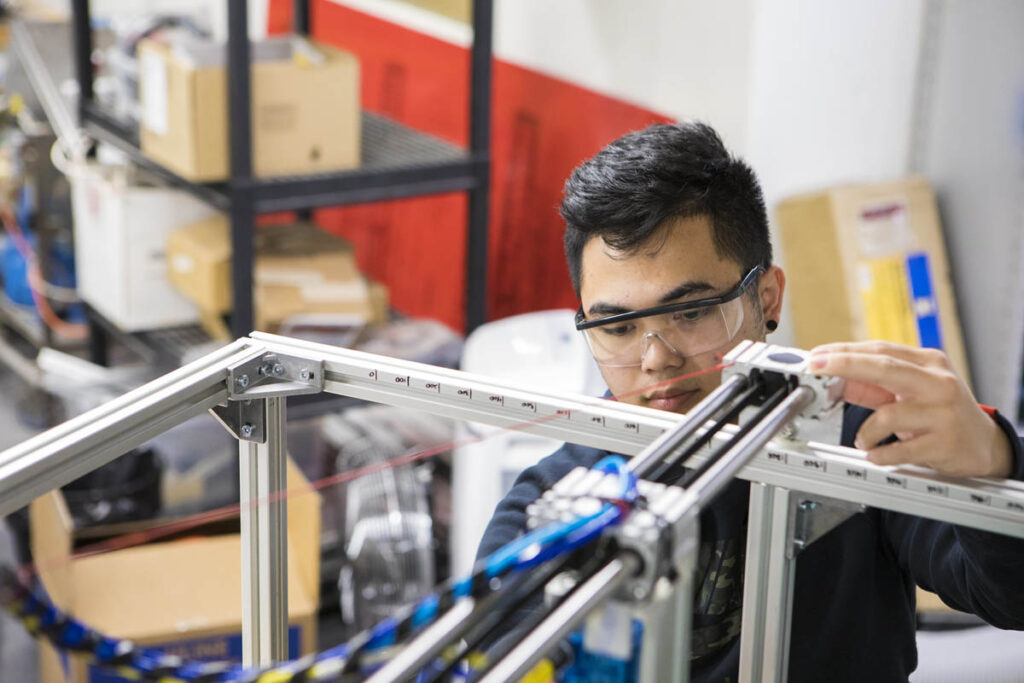
Analyze automated systems, using automation and process control to integrate electrical, mechanical, electronic and chemical systems and allowing instruments to measure, record and control industrial processes.
In this program, you’ll develop the analytical and technical skills needed to design, analyze and operate various electrical systems. As you explore your specialization, you’ll build versatile collaboration and communication skills and prepare yourself for lifelong learning and career advancement.
Develop fundamental math, physics, technical communication and safety skills while exploring computer and electrical systems.
Expand your knowledge and explore advanced concepts in math and physics, electric circuits, computer programming and hardware use.
Gain real work experience and build industry connections through an optional co-op placement before selecting your specialization program at the end of year one.
Choose to continue in Electrical Engineering Technology as your specialization program. Explore electrical machines, power electronics and programmable logic controllers (PLCs).
Learn introductory power systems, and electrical code and wiring while exploring advanced topics in electrical machines, power electronics and PLCs.
Complete a mandatory co-op placement with an employer to build practical experience and industry connections.
Complete a final project and report to integrate your learning while building professional skills and exploring advanced topics in power electronics and power systems.
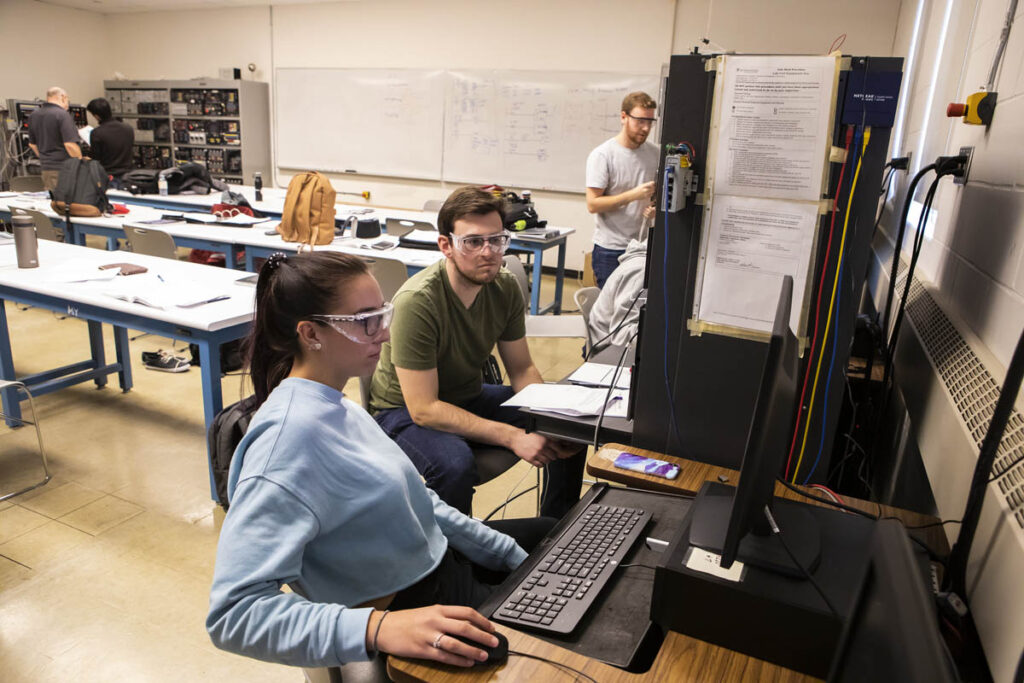
Excel with practical learning and experienced instructors, all focused on your success. With an employer-driven education, you won’t just be ready for a career – you’ll be prepared to stay in front of what’s ahead.
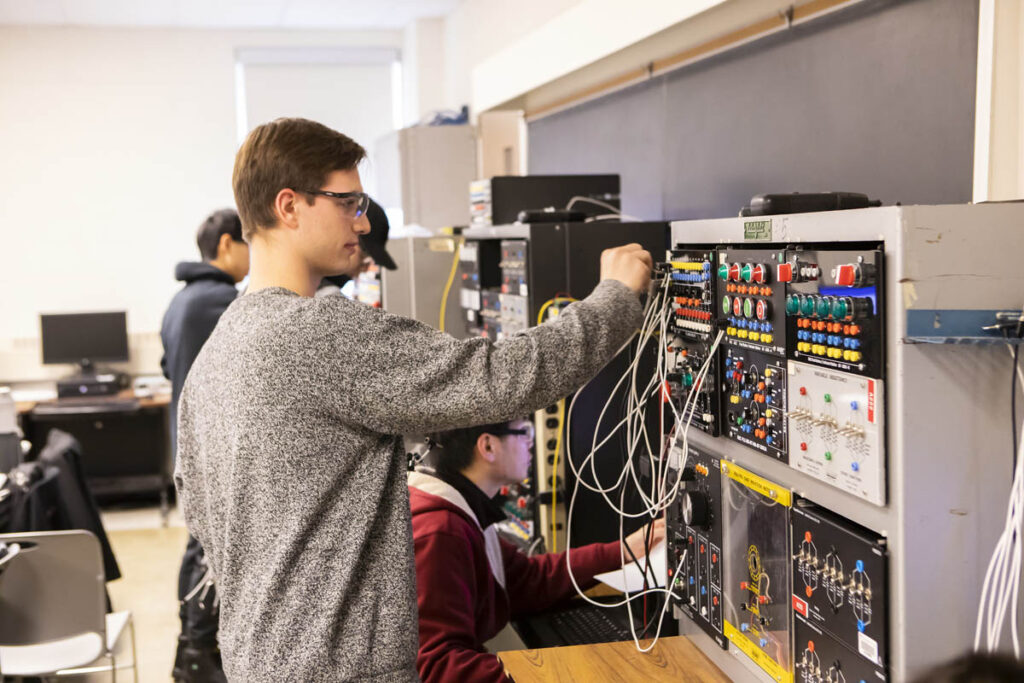
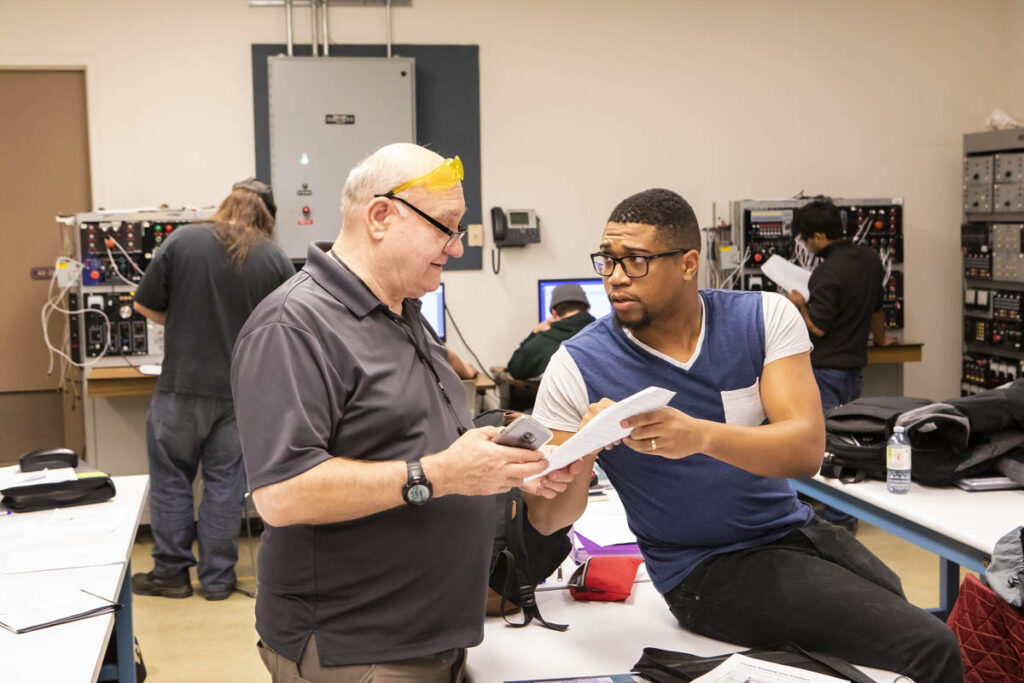
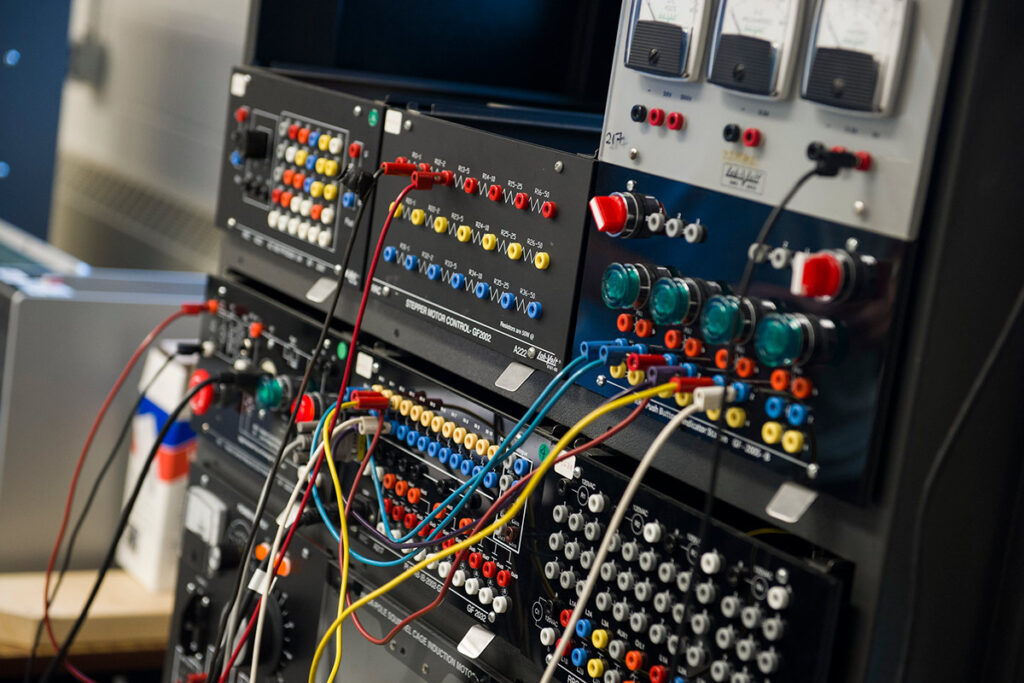
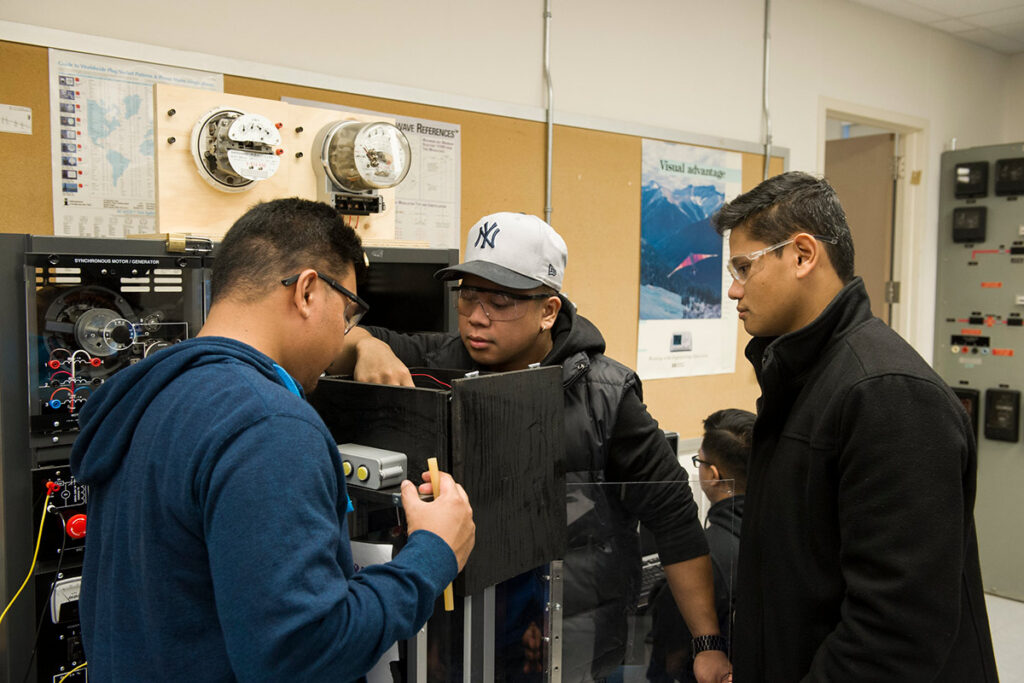
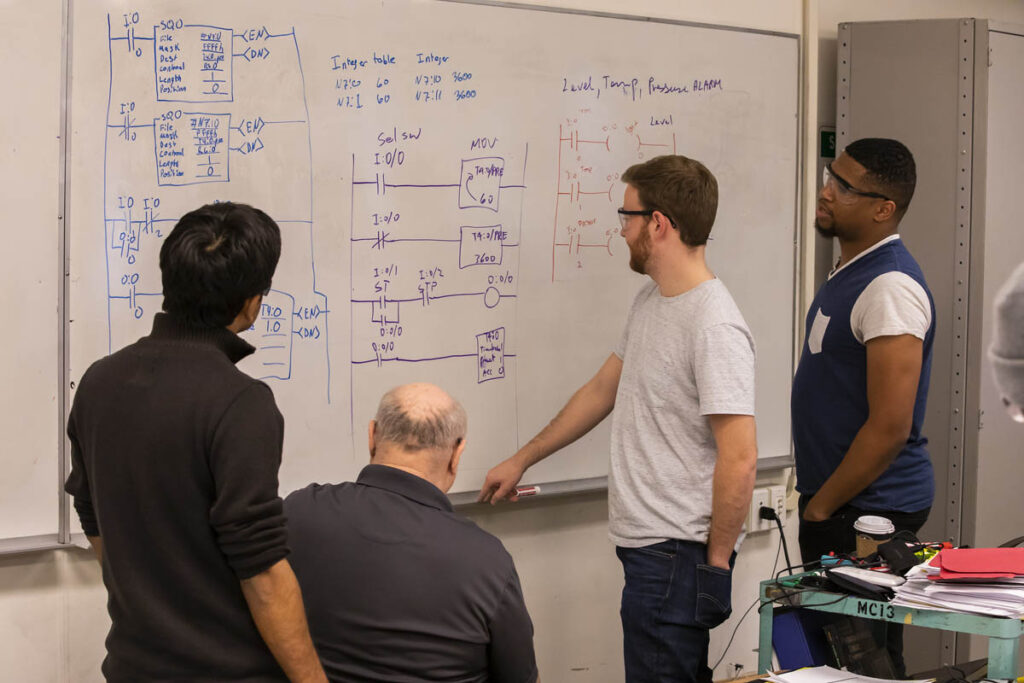
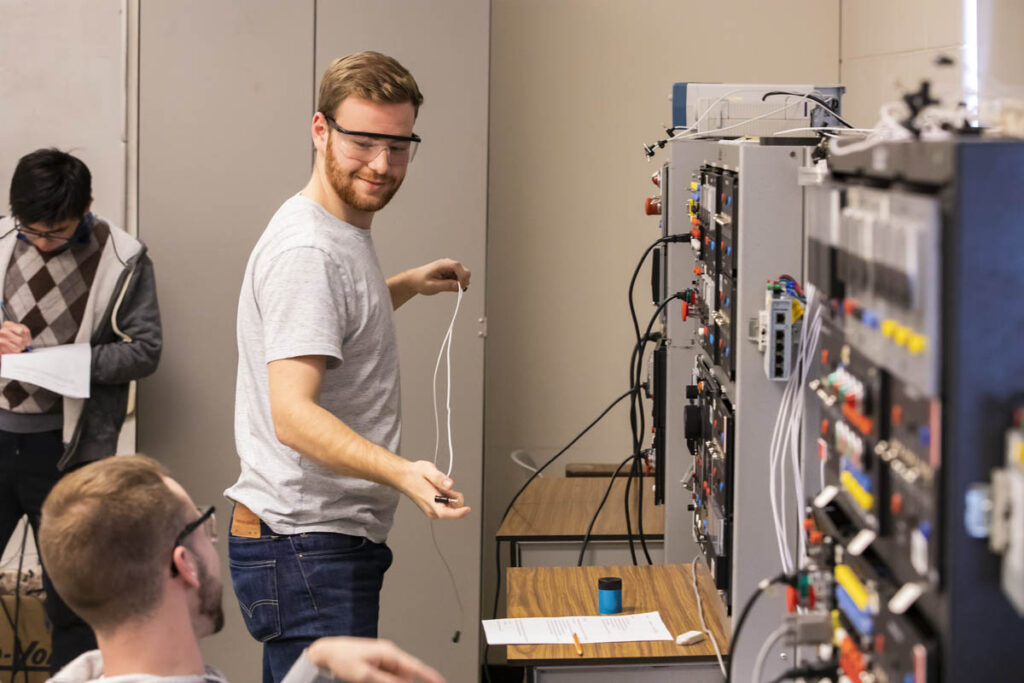
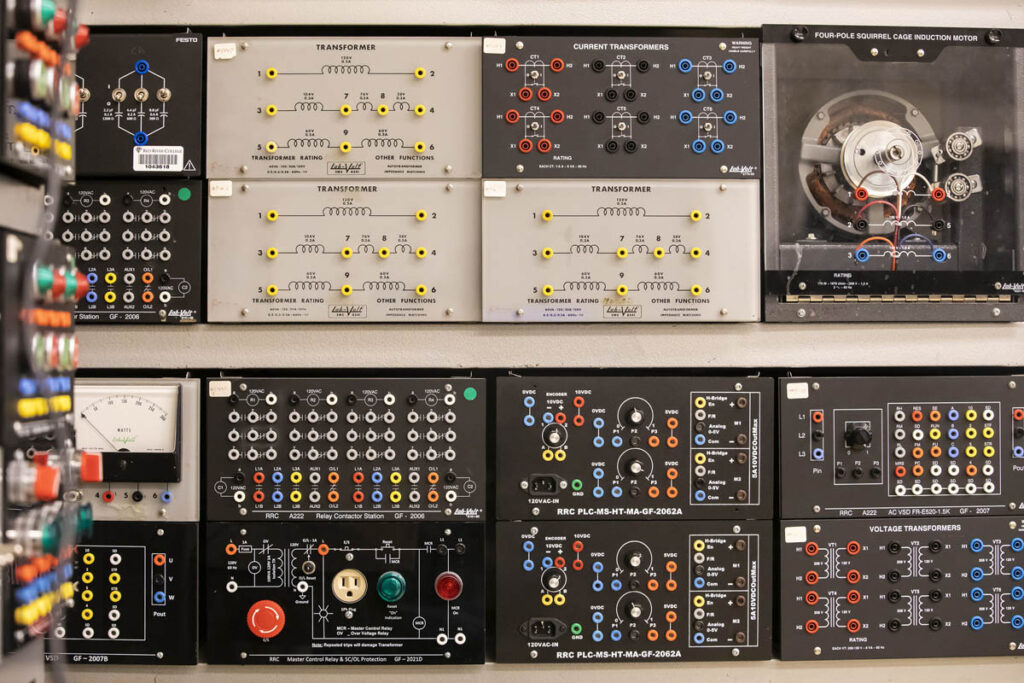
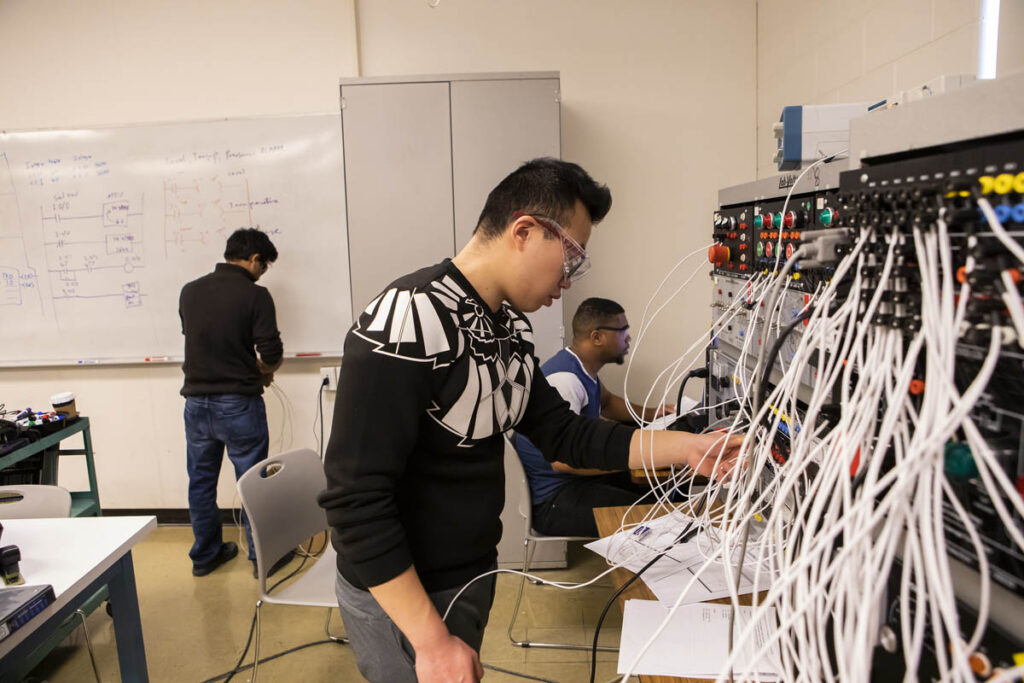

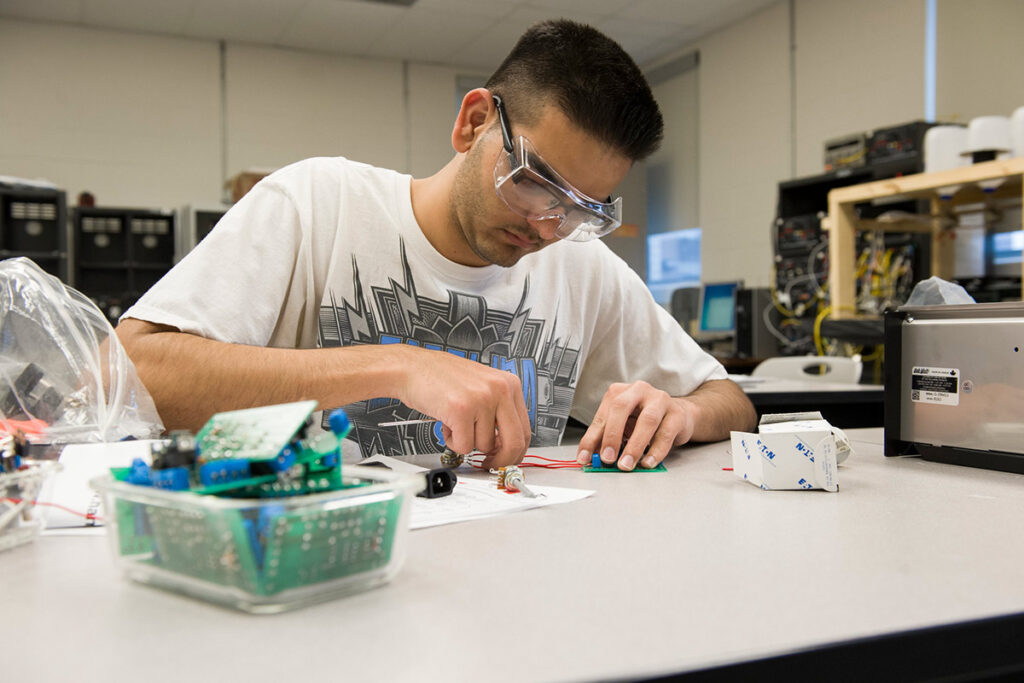
RRC Polytech is a leader in applied research in Canada. Matching industry needs with College resources and facilities drives innovation and growth in our province — and beyond.
Connect theoretical knowledge with practical solutions, foster innovation and contribute to industry advancements as part of this program.
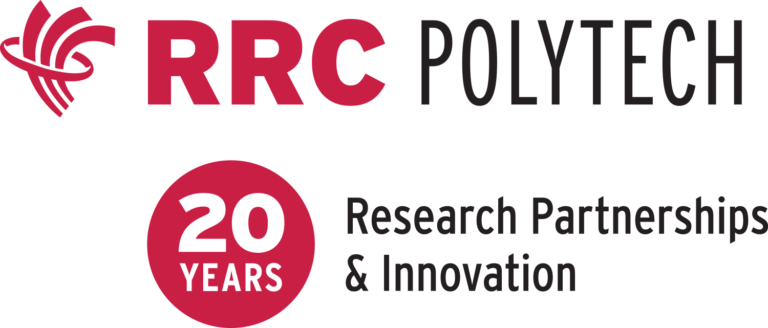
The Electrical Engineering Technology program prepares you for entry-level employment as an engineering technologist in the electrical industry, with careers in electrical utility systems, consulting engineering and electrical manufacturing. RRC Polytech trains EET students to be highly skilled, safe and career ready as soon as they graduate.
The statistics below represent the opinions and employment statuses of this program’s recent grads. They were retrieved from the 2019-2020 RRC Polytech Graduate Satisfaction and Employment Report.

RRC Polytech’s combination of practical skills, foundational knowledge, industry connections and state-of-the-art equipment ensure you graduate ready to work, innovate and adapt to new opportunities.
RRC Polytech connects you with your community and industry through a variety of student supports and networking opportunities. In addition to these community events, Electrical Engineering Technology’s co-op work terms provide direct work experience and connect you with employers face-to-face.
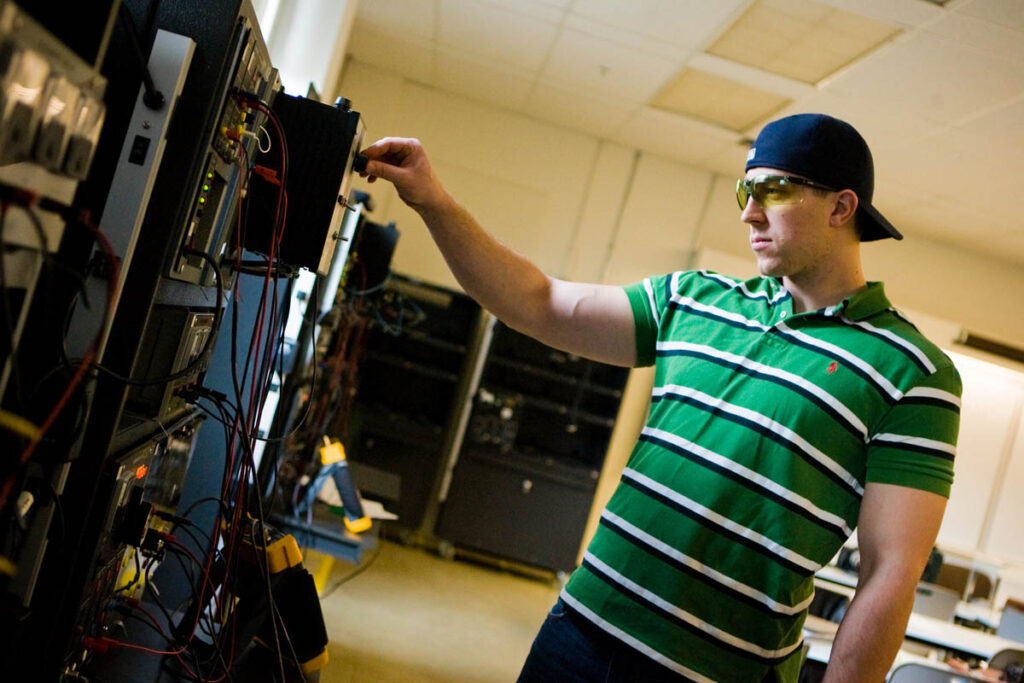

Our passionate, industry-experienced instructors are focused on making sure you succeed. Using their years of work experience and expertise, they ensure your education is up-to-date, relevant and surpasses expectations.
“The EET program helped me meet the academic requirements and enhanced my hands-on skills, which overall boosted my confidence.”
Jagwantdeep Chhina – Test Technologist
Celco Automationers

“I gained technical and hands-on skills in class and the practical lab class. The final project… gave me a chance to build my problem-solving and teamwork abilities.”
Sophie Shi – Junior Electrical Designer
Hatch
As an Electrical Engineering Technology student, you are curious and want to develop a more profound, practical understanding of technology and the systems that enhance our lives. You enjoy working with your hands, fixing and improving anything and everything. If a device or system isn’t working, you want the skills and knowledge to fix it.
Students that excel in this program often share these interests, skills and personality traits.

Ensure signup goes smoothly and understand program requirements before registering. Review required documents and procedures to make sure you’re prepared to enter this program.

Start planning with peace of mind and get the information you need on one easy-to-find page. Review start dates, locations, book and equipment costs and program fees.
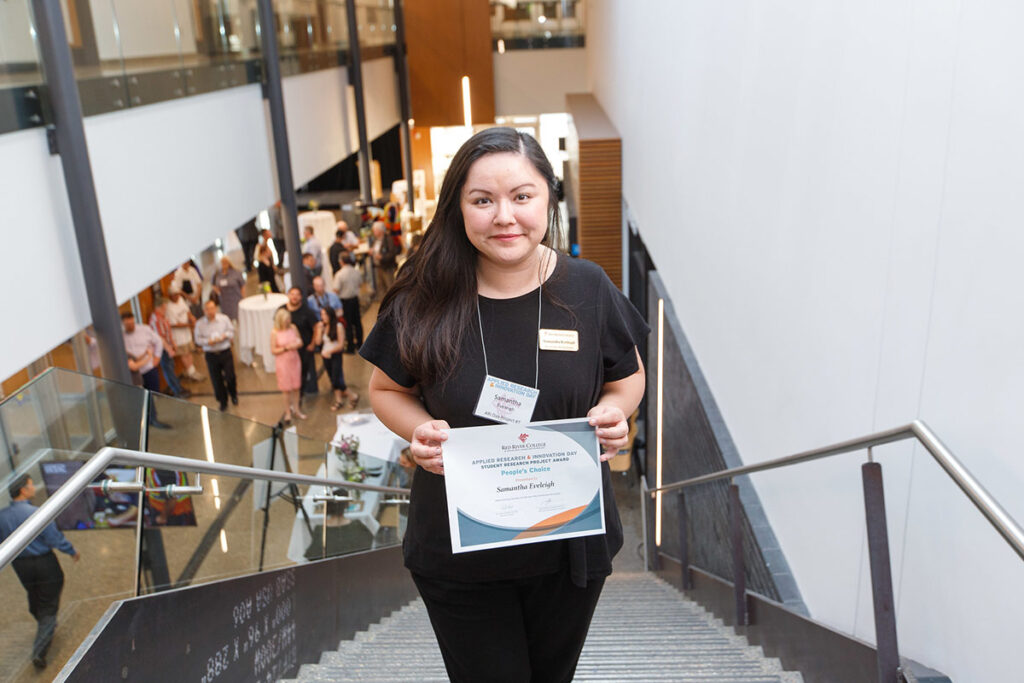
Celebrate and motivate your learning. Whether you’ve sprinted through the first term or just received your acceptance letter, find a variety of bursaries, scholarships and awards.

Explore our Catalogue for more detailed information, including a program outline, course descriptions and everything you’ll need to plan and prepare for your future success.

Start preparing with peace of mind. View information about courses and sections, including locations, delivery methods and costs. It only takes minutes to register and further your future.

Plan out your preferred learning journey. Review a summary of this program’s courses to discover what you’ll learn and how an RRC Polytech education will help your career.

Ensure signup goes smoothly and understand program requirements before registering. Review required documents and procedures to make sure you’re prepared to enter this program.

Explore our Catalogue for more detailed information, including a program outline, course descriptions and everything you’ll need to plan and prepare for your future success.
Your future is within reach, and we’re here to help you achieve it. Experience industry-focused opportunities available at RRC Polytech and develop the knowledge and skills to grow, lead and excel in your future career.
Support yourself while pursuing your RRC Polytech education. You may be eligible for loans, grants and scholarships to help tackle your financial needs.
Explore our upcoming information sessions and events to learn more about our programs and to get your questions answered.
RRC Polytech campuses are located on the lands of the Anishinaabeg, Ininiwak, Anishininwak, Dakota Oyate, and Denésuline, and the National Homeland of the Red River Métis.
We recognize and honour Treaty 3 Territory Shoal Lake 40 First Nation, the source of Winnipeg’s clean drinking water. In addition, we acknowledge Treaty Territories which provide us with access to electricity we use in both our personal and professional lives.